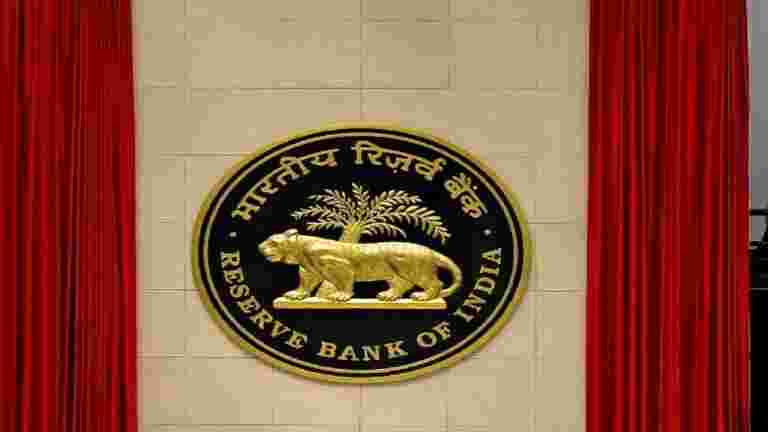原标题:【摩根观点分享】摩根资产管理发布《2022年长期资本市场假设》来源:上投摩根领航者

摩根资产管理近日发布《2022年长期资本市场假设》,当中考虑到疫情造成的经济创伤已迅速消退,但相关的政策所带来的影响将持续。报告对200多个主要资产类别在未来十年的年均回报进行了预测。
在本期报告中,预期回报率依然较历史标准偏低,估计60/40股债组合*回报率为4.3%,意味着投资人需要放眼传统资产市场之外,从而谋求更高的回报。此外,今年的研究指出通胀上升蚕食固定收益资产的回报,因此投资人需考虑另类资产及纳入私募投资在其投资组合内,以此扩大投资回报来源。
(*该组合由60%MSCI所有国家世界指数以及40%彭博美国综合指数组成)
摩根资产管理全球多资产策略师Patrik Schöwitz表示:“疫情爆发至今接近两年,全球经济复苏势头强劲。虽然经济遭受的创伤有限,但是相关的刺激政策对全球经济和资产市场产生持久的影响。今年是我们多年来首次上调长期通胀预测。尽管通胀预期较高而公开市场资产的回报预期较低,但对于愿意在公开市场资产和核心市场以外开拓机会的投资人,市场仍然充满机遇。”
Schöwitz补充:“我们预测另类资产的回报不亚于公开市场。另类资产的好处是取得超额回报的机会较高,享有低流动性的风险溢价,以及可选择能提供高于纯市场风险溢价(贝他系数)的回报率的投资经理等,所以另类资产将继续在未来十年吸引资本。”
谈到在核心市场以外分散收益来源,摩根资产管理全球多资产策略师盛楠表示:“鉴于中国近期经济增长放缓及监管形势不明朗,该市场提供超额回报的机会高于提供市场基准回报的机会。纵然短期仍存在波动,但投资中国资产对全球投资人而言意义重大。长远来看,受惠于资本市场进一步改革开放、具吸引力的投资回报和分散投资机会,我们预期中国在岸股票和债券的回报将显著高于核心发达市场,并在全球投资组合中占据更重要的位置。”
主要结论
全球增长:预计在未来10至15年,全球整体经济增长将较过去十年相对放缓。其中,发达市场的综合增长率(1.5%)将相当接近过去数年的平均水平,但新兴市场的总体增长率(3.7%)将低于过去20年(截至2020年的20年为6.0%),部分原因是中国经济增长逐渐放缓。
全球通胀:这是我们多年来首次上调长期通胀预测,从2.2%提高至2.4%,并认为现在通胀下行风险有所减小。我们留意到当前的通胀形势与以往有所不同:经济衰退结束后,产出缺口迅速收窄;与此同时,财政政策和货币政策刺激并肩实行。在疫情后期出现的通胀较各国央行预期略为棘手。
政策:疫情下救市政策所带来的影响将挥之不去,我们亦必须承认,推动各经济体走出疫情阴霾的积极财政政策和货币政策,将构成一场剧烈而持久的经济政策变革。10年来,仅靠宽松的货币政策来应对资本支出低迷、周期性紧缩以及生产力疲弱的日子一去不复返。
资产类别假设
股票:我们将中国A股的本地货币回报率假设调高至6.6%,美元回报率假设则上调至8.2%,分别高于去年的6.3%和7.5%。在未来10至15年,我们预测美国大型股的年回报率将保持在4.10%,而行业组合改善带来正面的利润和估值影响,使得我们将欧元区股票的回报率预测调高60个基点至5.80%。我们将日本的回报率预测轻微调低10个基点至5.00%,英国方面则大幅下调260个基点至4.10%,因预计英国市场的利润率将面临不利因素,并可能出现估值收缩。新兴市场的整体回报率跌幅较为温和,减少20个基点至6.60%。基于这些变动,我们以美元计的全球股票回报率预测调低10个基点至5.00%。
固定收益:虽然政府债券的展望依然黯淡,但我们对名义债券回报率的预测较2021年有所回升。由于初始收益率较高以及经过一年时间,我们的计算剔除了一年的零或负政策利率,并且加入预测期结束时利率较高的一年,令债券回报率有所提高。综合这些因素,我们对十年期美国国债回报率的预测上调80个基点至2.40%,美元现金回报率的预测则调高20个基点至1.30%。然而,基于我们对美国通胀的估计为2.30%,故此在我们的预测期内,现金的平均实质回报率依然是负数,而美国国债的回报则为零。在美国以外的市场,形势似乎黯淡,十年期欧元区政府债券和十年期英国政府债券的名义回报率分别仅为1.30%和1.70%,意味将出现负实质回报。值得一提的一个例外情况是中国政府债券,我们预测其最新的回报率为3.4%,所以中国政府债券继续拥有全球债券中独特的风险回报吸引力。
另类投资:与公开市场相比,金融另类投资的回报率显著提升,市值加权私募股权的回报率较去年上升30个基点至8.10%,而私募债权则为6.90%。私募债权的预期回报率较2021年增加10个基点,升幅远胜公开市场企业债的回报率。虽然金融另类投资通常受股票回报影响,但凭藉投资经理的慎重选择,有望获得额外回报,对投资组合有重大帮助。实物资产继续脱颖而出,一方面未完全受到疫情后风险反弹的影响,同时有望在未来不同经济环境下下保持抗逆力,所以估值吸引。短期而言,当债券收益率受压时,投资人将转向房地产、基建和运输资产带来的可观收入流。
除主要结论外,今年的《长期资本市场假设》研究亦深入探讨四个重要主题,包括:
行善与得益:ESG投资的权衡取舍
中国资产:视若无睹是投资人面临的主要风险
另类投资:重要买方指南
权衡税收损失对长期储蓄目标的影响
《长期资本市场假设》是摩根资产管理自主研发的深入、独有的研究流程的一部分,当中运用了定性和定量数据,及摩根资产管理30多名专家的见解。在过去26年的历史中,这些经历时间考验的预测有助建立更强健的投资组合、引领策略资产配置,并对超过200个主要资产及策略类别建立了10至15年年期的合理风险及回报预期。这些假设推动着摩根大通多资产投资的决策,同时为全年客户提供信息。
注:《长期资本市场假设》仅供机构投资者和专业投资者参考。本新闻稿仅为摘要,仅供参考。
JPMAM Long-Term Capital Market Assumptions: Given the complex risk-reward trade-offs involved, we advise clients to rely on judgment as well as quantitative optimization approaches in setting strategic allocations. Please note that all information shown is based on qualitative analysis. Exclusive reliance on the above is not advised. This information is not intended as a recommendation to invest in any particular asset class or strategy or as a promise of future performance. Note that these asset class and strategy assumptions are passive only – they do not consider the impact of active management. References tofuture returns are not promises or even estimates of actual returns a client portfolio may achieve. Assumptions, opinions and estimates are provided for illustrative purposes only. They should not be relied upon as recommendationsto buy or sell securities. Forecasts of financial market trends that are based on current market conditions constitute our judgment and are subject to change without notice. We believe the information provided here is reliable, but donot warrant its accuracy or completeness. This material has been prepared for information purposes only and is not intended to provide, and should not be relied on for, accounting, legal or tax advice. The outputs of the assumptions are provided for illustration/discussion purposes only and are subject to significant limitations. “Expected” or “alpha” return estimates are subject touncertainty and error. For example, changes in the historical data from which it is estimated will result in different implications for asset class returns. Expected returns for each asset class are conditional on an economic scenario; actual returns in the event the scenario comes to pass could be higher or lower, as they have been in the past, so an investor should not expect toachieve returns similar to the outputs shown herein. References to future returns for either asset allocation strategies or asset classes are not promises of actual returns a client portfolio may achieve. Because of the inherent limitations of all models, potential investors should not rely exclusively on the model when making a decision. The model cannot account forthe impact that economic, market, and other factors may have on the implementation and ongoing management of an actual investment portfolio. Unlike actual portfolio outcomes, the model outcomes do not reflect actual trading, liquidity constraints, fees, expenses, taxes and other factors that could impact the future returns. The model assumptions are passive only – they do not considerthe impact of active management. A manager’s ability to achieve similar outcomes is subject to risk factors over which the manager may have no or limited control. The views contained herein are not to be taken as advice or are commendation to buy or sell any investment in any jurisdiction, nor is it acommitment from J.P. Morgan Asset Management or any of its subsidiaries to participate in any of the transactions mentioned herein. Any forecasts, figures, opinions or investment techniques and strategies set out are for information purposes only, based on certain assumptions and current market conditions and are subject to change without prior notice. All information presented herein is considered to be accurateat the time of production. This material does not contain sufficient information to support an investment decision and it should not be relied upon by you in evaluating the merits of investing in any securities or products. In addition, users should make an independent assessment of the legal, regulatory, tax, credit and accounting implications and determine, together with their own financial professional, if any investment mentioned herein is believed to be appropriate to their personal goals. Investors should ensure that they obtain all available relevant information before making any investment. It should benoted that investment involves risks, the value of investments and the income from them may fluctuate in accordance with market conditions and taxation agreements and investors may not get back the full amount invested. Both past performance and yield are not a reliable indicator of current and future results.
J.P. Morgan Asset Management is the brand for the asset management business of JPMorgan Chase & Co. and its affiliates worldwide.
To the extent permitted by applicable law, we may record telephone calls and monitor electronic communications to comply with our legal and regulatory obligations and internal policies. Personal data will be collected, stored and processed by J.P. Morgan Asset Management in accordance with our privacy policies at https://am.jpmorgan.com/global/privacy.
This communication is issued by the following entities:
n the United States, by J.P. Morgan Investment Management Inc. or J.P. Morgan Alternative Asset Management, Inc.,both regulated by the Securities and Exchange Commission; in Latin America, for intended recipients’ use only, by local J.P. Morgan entities, as the case may be. In Canada, for institutional clients’ use only, by JPMorgan Asset Management (Canada) Inc., which is a registered Portfolio Manager and Exempt Market Dealer in all Canadian provinces and territories except the Yukon and is also registered as an Investment Fund Manager in British Columbia, Ontario, Quebec and Newfoundland and Labrador. Inthe United Kingdom, by JPMorgan Asset Management (UK) Limited, which is authorized and regulated by the Financial Conduct Authority; in other European jurisdictions ,by JPMorgan Asset Management (Europe) S.à r.l. In Asia Pacific (“APAC”), by the following issuing entities and in the respective jurisdictions in which they are primarily regulated: JPMorgan Asset Management (Asia Pacific) Limited,or JPMorgan Funds (Asia) Limited, or JPMorgan Asset Management Real Assets(Asia) Limited, each of which is regulated by the Securities and Futures Commission of Hong Kong; JPMorgan Asset Management (Singapore) Limited (Co.Reg. No. 197601586K), this advertisement or publication has not been reviewed by the Monetary Authority of Singapore; JPMorgan Asset Management (Taiwan) Limited; JPMorgan Asset Management (Japan) Limited, which is a member of the Investment Trusts Association, Japan, the Japan Investment Advisers Association, Type II Financial Instruments Firms Association and the Japan Securities Dealers Association and is regulated by the Financial ServicesAgency (registration number “Kanto Local Finance Bureau (Financial Instruments Firm) No. 330”); in Australia, to wholesale clients only as defined in section 761A and 761G of the Corporations Act 2001 (Commonwealth), by JPMorgan AssetManagement (Australia) Limited (ABN 55143832080) (AFSL 376919).
For U.S. only: If you are a person with a disability and need additional support inviewing the material, please call us at 1-800-343-1113 for assistance.
本文件关于金融市场趋势的观点、估测、预测和声明均基于当前市场环境作出,可随时发生变化,恕不另行通知。摩根资产管理相信,本文件载列的资料均属可靠,但不代表其为准确或完整。本文件描述的观点和策略可能不适合所有投资者。













